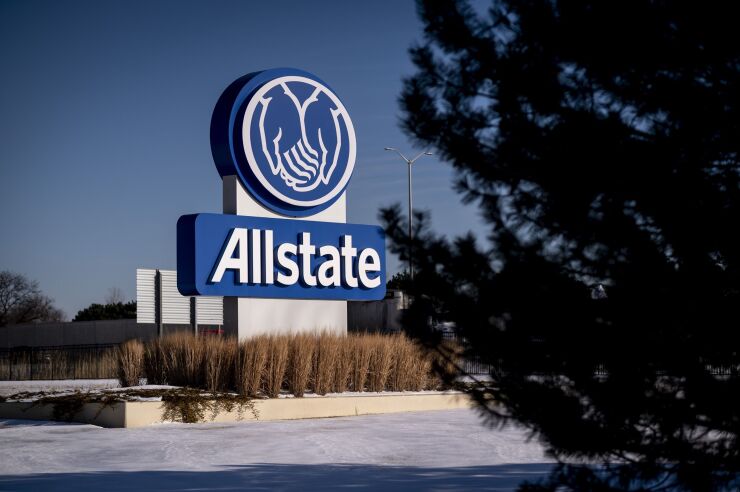(Bloomberg) -- The Covid-19 shutdowns that swept the U.S. have been a boon for a newer auto-insurance product: pay-per-mile coverage.
During the pandemic, Allstate Corp. has seen interest surge in its Milewise offering, which lets customers pay auto-insurance premiums for just the amount of driving they actually complete, said Glenn Shapiro, president of Allstate’s personal property-liability operations. The number of cars insured through Milewise was about six times higher last year than in 2019, and there were roughly four times more policies, with some covering multiple vehicles.
Over the past few years, auto insurers have created more and more policies that allow customers to get insurance coverage just for the distance they actually drive, providing an alternative to broad policies that cover unlimited miles. Firms such as Allstate, the
“While the pandemic has certainly accelerated that trend and spiked it for a period of time, I also think there’ll be an element of that that persists,” Shapiro said in an interview. “There was a really good business case for pay-per-mile pre-pandemic, and there will be post-pandemic.”
While the majority of recent interest in Allstate’s pay-per-mile program came from new customers, some existing clients switched as they cut back on driving, Shapiro said. The insurer’s Milewise offering, which expanded this week into Oklahoma and Wisconsin and is now in 19 states overall, uses a
Auto insurers initially benefited last year as the pandemic started spurring shutdowns across the country, leading to a nearly 40%
The future of auto insurance will entail more pay-per-mile policies and telematic offerings, which allow insurers to track driving behavior and reward better and safer customers, according to Credit Suisse Group AG analyst Mike Zaremski. While there can be execution challenges with insurers building out the proper technology, companies that don’t adopt it could lose their good customers, leaving worse drivers behind as clients, he said.
“The pandemic has accelerated the adoption of pay-per-mile and telematics because there are a lot of people realizing that ‘I’m not driving as much,’” Zaremski said in an interview. The technologies can also benefit insurers because “if you have the ability to deploy this technology successfully, the volatility of your earnings should be much smoother.”






